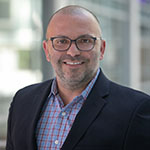Congratulations on your historic win! Due to the COVID-19 pandemic, we have seen yet again how much more racial and ethnic minorities are impacted by health emergencies. NMAC looks for your administration to prioritize racial justice and reconciliation. Vice President-elect Harris is uniquely positioned to speak to America’s longstanding and present-day systemic racism, sexism, homophobia, and transphobia. The heightened attention to the Black Lives Matter movement has once again shone a light on the systemic racism that African Americans face daily. Now we call on the Biden administration to offer meaningful change and sustainable solutions.
For NMAC, it’s hard to put into words the historic nature of the election of a woman born to Black and South Asian immigrants to be our Vice President. She represents us. In the United States, Blacks are the most HIV-impacted race of women in the United States. Your administration has committed to ending the HIV epidemic by 2025. NMAC and the entire HIV movement looks forward to making that a reality.
Solutions for ending the HIV epidemic must focus on race and dismantling systemic racism. The Biden era is an opportunity to reset the course of our work to end the HIV epidemic and to build solutions that are community-led and focused. Here are some of NMAC’s near term recommendations:
Transition Period
The HIV movement hopes to work with your administration on key presidential appointments in positions like the Assistant Secretary for Health (ASH), as well as presidential staff at the CDC, FDA, HRSA, CMS, HUD/HOPWA, IHS and SAMHSA and to identify leaders who believe in science-based and evidenced solutions who will rebuild the community’s trust in government.
NMAC, like many HIV organizations, also recommends the new administration reestablish the Office of National AIDS/HIV Policy as part of the White House Domestic Policy Council. This act will reaffirm your commitment to end the HIV epidemic. The President’s Advisory Council on HIV/AIDS should be housed back in the White House and we urge you to fill the many open slots. When filling the seats, we hope you will prioritize people living with HIV, especially from the diverse communities that are most impacted by the virus.
After Inauguration
On day one, NMAC asks the new administration for executive orders that reverse the Trump Administration’s efforts that directly or indirectly affected the communities highly impacted by HIV. For example, we cannot allow the elimination of trainings to address racial bias and its impact on our constituents. Now is the time to reassert the dignity, rights, and access to healthcare for BIPOC, women, and/or LGBTQ+ communities, particularly the transgender/non gender-conforming communities. For too long we have been minimized and made to feel not part of the American dream.
NMAC understands that every administration wants its own plans and strategies. President George H.W. Bush first signed the Ryan White CARE Act. President George W. Bush had the President’s Emergency Plan for AIDS Relief. President Clinton appointed the first White House AIDS Czar. Under President Obama, the first National HIV/AIDS Strategy was created. President Trump’s administration expanded to a national effort on Ending the HIV Epidemic: A Plan for America (EHE). NMAC believes that an amalgam of these plans should be the blueprint for the Biden administration. Your administration must address the systemics in order to End the Epidemics of HIV, STIs, and Hepatitis. It’s time to think big by working to end three (3) epidemics.
The work starts with your FY21 budget. We urge you to fully fund efforts to end the HIV, STIs, and viral hepatitis epidemics. Additionally, we request full funding for the Ryan White program and HOPWA and a renewed commitment to finding an HIV vaccine and cure. HIV, STIs, and viral hepatitis sit at the intersection of many of your administration’s priorities, including healthcare, racial justice for BIPOC, LGBTQ+ communities, drug pricing, expanded access to healthcare through the Affordable Care Act, and a public health option. The HIV community also looks to work closely with your administration to stop the criminalization of HIV transmission. Health conditions should not make someone more liable to criminal prosecution.
NMAC is closely monitoring the “nature” of your 2021 Inauguration. Will it be virtual or in-person? Either way, as we’ve done in the past, NMAC in coalition with other HIV organizations, will host an inauguration event. We hope you or a member of your senior team can join us to celebrate your inauguration.
Congratulations, we look forward to working together.

Paul Kawata
NMAC
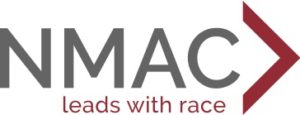
 Seven thousand people have registered to attend this year’s
Seven thousand people have registered to attend this year’s  This year’s virtual conference will be unlike any USCHA. While it will never replace in-person meetings, we hope it will remind everyone that they are part of the HIV family. The Opening Plenary sets the tone for the meeting by examining how racism stops our work from being successful and blocks our efforts to end HIV. It is a tough plenary, particularly for White people with privilege. It’s not enough to say you stand with Black lives; you also have to do the work. You have to hear and understand the stories of Black and Brown people and how racism impacts our daily existence. Part of the plenary will be in Spanish (with English translation) because NMAC wants attendees to understand the challenges facing non-English speaking or English as a second language clients and staff.
This year’s virtual conference will be unlike any USCHA. While it will never replace in-person meetings, we hope it will remind everyone that they are part of the HIV family. The Opening Plenary sets the tone for the meeting by examining how racism stops our work from being successful and blocks our efforts to end HIV. It is a tough plenary, particularly for White people with privilege. It’s not enough to say you stand with Black lives; you also have to do the work. You have to hear and understand the stories of Black and Brown people and how racism impacts our daily existence. Part of the plenary will be in Spanish (with English translation) because NMAC wants attendees to understand the challenges facing non-English speaking or English as a second language clients and staff. Get there early on Monday to explore the conference platform and to get a good seat at the Opening. The conference lobby sits at the intersection of Black Lives Matter Plaza in Washington, DC and the John Lewis mural in Atlanta. The exhibit hall is in front of the fence at Lafayette Square where protesters have sent messages to the White House. The information desk is in front of the Breonna Taylor and Trayvon Martin murals. NMAC’s goal is to show the HIV movement that we are part of the greater struggle for racial justice and health equity. Our work to end the epidemic must stand in solidarity with Black Lives Matter.
Get there early on Monday to explore the conference platform and to get a good seat at the Opening. The conference lobby sits at the intersection of Black Lives Matter Plaza in Washington, DC and the John Lewis mural in Atlanta. The exhibit hall is in front of the fence at Lafayette Square where protesters have sent messages to the White House. The information desk is in front of the Breonna Taylor and Trayvon Martin murals. NMAC’s goal is to show the HIV movement that we are part of the greater struggle for racial justice and health equity. Our work to end the epidemic must stand in solidarity with Black Lives Matter. While this all sounds amazing, my real concern is “will the platform crash with close to 7,000 people online.” In other words, we also need your patience and understanding. Staff is working hard, but it will be a photo finish. Like everyone, we’ve had to pivot into the unknown. We don’t know what we don’t know so we may be asking the wrong questions. Taking risks is the fuel that runs our movement. When HIV was discovered, we had no idea what to do. We only had each other and the hope that our friends would not die alone.
While this all sounds amazing, my real concern is “will the platform crash with close to 7,000 people online.” In other words, we also need your patience and understanding. Staff is working hard, but it will be a photo finish. Like everyone, we’ve had to pivot into the unknown. We don’t know what we don’t know so we may be asking the wrong questions. Taking risks is the fuel that runs our movement. When HIV was discovered, we had no idea what to do. We only had each other and the hope that our friends would not die alone. Workshops will be prerecorded and live. The challenge will be the “live” question and answer portion with the workshop presenters. During this section, participants will hopefully be able to ask questions via the “chat” box. While most of us have been on zoom calls with 30 or 40 people, what happens when you have hundreds of attendees? There are 94 workshops and institutes. This photo was taken from the PACHA (President’s Advisory Council on HIV/AIDS) workshop. NMAC wants to thank all of the presenters who donated their time.
Workshops will be prerecorded and live. The challenge will be the “live” question and answer portion with the workshop presenters. During this section, participants will hopefully be able to ask questions via the “chat” box. While most of us have been on zoom calls with 30 or 40 people, what happens when you have hundreds of attendees? There are 94 workshops and institutes. This photo was taken from the PACHA (President’s Advisory Council on HIV/AIDS) workshop. NMAC wants to thank all of the presenters who donated their time. Millions of people are losing their jobs because of COVID-19. At the same time, the HIV movement is getting its first influx of new money to end the HIV epidemic. With all this need, it was easy to envision a Jobs Fair, but much more difficult to make an integral part of this virtual meeting. Thankfully, we received announcements from more than 30 organizations to post during the conference. If you are looking for employment, please bring your resume and schedule information interviews with organizations who are hiring. NMAC’s goal is for our movement to hire people from the communities hardest hit by HIV.
Millions of people are losing their jobs because of COVID-19. At the same time, the HIV movement is getting its first influx of new money to end the HIV epidemic. With all this need, it was easy to envision a Jobs Fair, but much more difficult to make an integral part of this virtual meeting. Thankfully, we received announcements from more than 30 organizations to post during the conference. If you are looking for employment, please bring your resume and schedule information interviews with organizations who are hiring. NMAC’s goal is for our movement to hire people from the communities hardest hit by HIV. The Closing Plenary on Wednesday, October 21st is our Federal Plenary. Rather than having the same old talking heads with their PowerPoints, this year’s plenary has NMAC staff asking questions to our federal leaders. We are very thankful that our old friend Dr. Anthony Fauci has recorded a special plenary talk. With all his work on COVID-19, we were honored that he found time to address USCHA.
The Closing Plenary on Wednesday, October 21st is our Federal Plenary. Rather than having the same old talking heads with their PowerPoints, this year’s plenary has NMAC staff asking questions to our federal leaders. We are very thankful that our old friend Dr. Anthony Fauci has recorded a special plenary talk. With all his work on COVID-19, we were honored that he found time to address USCHA.

 Over 5,400 people have registered. To train attendees on the conference platform, NMAC will host a webinar on Thursday, 15th at 1 PM (eastern).
Over 5,400 people have registered. To train attendees on the conference platform, NMAC will host a webinar on Thursday, 15th at 1 PM (eastern). 








 Over 5,000 people have registered for this year’s
Over 5,000 people have registered for this year’s 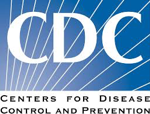

 We received over 250 applications for our iPad program to help address the digital divide. Our goal is to have the iPads in the mail by Oct 9th. NMAC will go public with the decisions on October 13th. So many of the applicants talked about how they were unemployed as a result of COVID-19. Unfortunately, there is much more need than money. In full transparency, NMAC will share the demographics of who got selected and tell the stories of some of the recipients in my October 13th e-newsletter.
We received over 250 applications for our iPad program to help address the digital divide. Our goal is to have the iPads in the mail by Oct 9th. NMAC will go public with the decisions on October 13th. So many of the applicants talked about how they were unemployed as a result of COVID-19. Unfortunately, there is much more need than money. In full transparency, NMAC will share the demographics of who got selected and tell the stories of some of the recipients in my October 13th e-newsletter. The Denver Principles were all about the empowerment of People Living with AIDS. Thirty-seven years later these principles still ring true, only now we have COVID-19, Black Lives Matter, climate change, ICE, massive unemployment, and economic devastation. Now more than ever, we are fighting for our lives and the lives of the people we love. We will see you online.
The Denver Principles were all about the empowerment of People Living with AIDS. Thirty-seven years later these principles still ring true, only now we have COVID-19, Black Lives Matter, climate change, ICE, massive unemployment, and economic devastation. Now more than ever, we are fighting for our lives and the lives of the people we love. We will see you online.
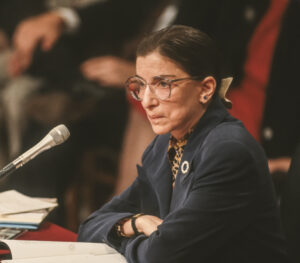
 Webinar with Congresswomen Barbara Lee
Webinar with Congresswomen Barbara Lee Photo or Video for USCHA
Photo or Video for USCHA How to Get A Federal Job
How to Get A Federal Job 2020 Virtual USCHA
2020 Virtual USCHA



 Against the backdrop of the fall election, COVID-19 and massive unemployment, there is a call for racial justice and Black Lives Matter. This is the fight of NMAC’s life and mission. Our long and historic commitment to health equity and racial justice will play itself out starting this fall with employment. To NMAC, employment is racial justice. Our movement has hundreds of millions of dollars in new funding to end the HIV epidemic. This funding should translate into tens of thousands of new jobs. At a time when so many are unemployed, this funding can be a lifeline to communities who are hurting. It becomes an issue of racial justice because NMAC is calling on employers to hire the communities that are most impacted by HIV. Unfortunately, this means communities of color.
Against the backdrop of the fall election, COVID-19 and massive unemployment, there is a call for racial justice and Black Lives Matter. This is the fight of NMAC’s life and mission. Our long and historic commitment to health equity and racial justice will play itself out starting this fall with employment. To NMAC, employment is racial justice. Our movement has hundreds of millions of dollars in new funding to end the HIV epidemic. This funding should translate into tens of thousands of new jobs. At a time when so many are unemployed, this funding can be a lifeline to communities who are hurting. It becomes an issue of racial justice because NMAC is calling on employers to hire the communities that are most impacted by HIV. Unfortunately, this means communities of color. The unknown in this calculation is a vaccine. While I am very hopeful, I believe the first iterations of the COVID-19 vaccine will only be partially effective. Is a partially effective vaccine enough to turn around the economic devastation that this virus has caused? Would you be willing to travel with a vaccine that is 50% effective? If not 50%, what is the percentage that would give you confidence and how long will it take to find that vaccine?
The unknown in this calculation is a vaccine. While I am very hopeful, I believe the first iterations of the COVID-19 vaccine will only be partially effective. Is a partially effective vaccine enough to turn around the economic devastation that this virus has caused? Would you be willing to travel with a vaccine that is 50% effective? If not 50%, what is the percentage that would give you confidence and how long will it take to find that vaccine? Transparency is important because too many people don’t trust people in power, particularly people in government. Black Lives Matter is calling for a new accountability when spending the public’s money. If we are going to build an HIV movement that is committed to racial justice, then it starts with being transparent about the money. Money is power and we need to monitor how HIV funds are being spent.
Transparency is important because too many people don’t trust people in power, particularly people in government. Black Lives Matter is calling for a new accountability when spending the public’s money. If we are going to build an HIV movement that is committed to racial justice, then it starts with being transparent about the money. Money is power and we need to monitor how HIV funds are being spent. Just as I requested that the CDC be transparent with the money they are keeping, I also think it is important for health departments to be transparent. While the vast majority are great, there are some health departments that keep too much of the money. After all these years fighting HIV, we know that community, particularly people living with HIV/AIDS, are core to the solution.
Just as I requested that the CDC be transparent with the money they are keeping, I also think it is important for health departments to be transparent. While the vast majority are great, there are some health departments that keep too much of the money. After all these years fighting HIV, we know that community, particularly people living with HIV/AIDS, are core to the solution. Nearly 250 people have registered for our August 13th Webinar with Raniyah Copeland from the
Nearly 250 people have registered for our August 13th Webinar with Raniyah Copeland from the 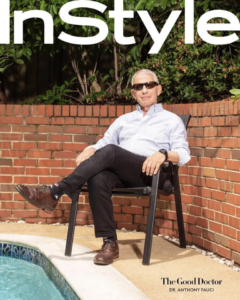
 Virtual meetings are new to most of us. Recent experiences showed NMAC that training in advance on the conference platform is vital to a good conference experience. USCHA will use multiple training tools including online manuals, webinars, and real people to provide technical support. The next two USCHA webinars will happen on:
Virtual meetings are new to most of us. Recent experiences showed NMAC that training in advance on the conference platform is vital to a good conference experience. USCHA will use multiple training tools including online manuals, webinars, and real people to provide technical support. The next two USCHA webinars will happen on: Staff is putting together “advance” workshops to serve as models for presenters. These early sessions will be online to collect feedback on the learning formats and to give presenters an example of USCHA’s expectations. The goal is to create a “good learning experience” for communities working on the frontlines of the epidemic and to educate and train them on the latest HIV prevention, care, and wrap around services in a COVID-19 world where Black Trans Lives Matter.
Staff is putting together “advance” workshops to serve as models for presenters. These early sessions will be online to collect feedback on the learning formats and to give presenters an example of USCHA’s expectations. The goal is to create a “good learning experience” for communities working on the frontlines of the epidemic and to educate and train them on the latest HIV prevention, care, and wrap around services in a COVID-19 world where Black Trans Lives Matter. Imagine if you will being a gay black man living with HIV in the ’80s. The oppressing societal stigmas are dire. Like a carpenter sanding 100-year-old floors, Congressman Lewis removed decades of stain from our souls. For as long as he served in Congress, no civil rights bills were passed without his support.
Imagine if you will being a gay black man living with HIV in the ’80s. The oppressing societal stigmas are dire. Like a carpenter sanding 100-year-old floors, Congressman Lewis removed decades of stain from our souls. For as long as he served in Congress, no civil rights bills were passed without his support.